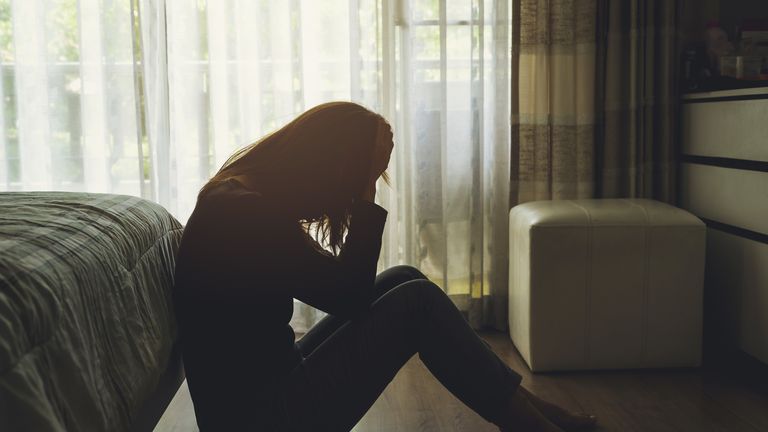PTSD affects one in 13 Britons before the age of 18, study finds
Researchers say the findings should serve as a "wake-up call", with many young people not receiving the support they need.
Friday 22 February 2019 10:24, UK
One in 13 young people in the UK experiences post-traumatic stress disorder (PTSD) before the age of 18 due to severe bullying and violence, new research suggests.
The first comprehensive study of the anxiety disorder in Britain also found that almost a third (31%) had experienced trauma in childhood.
Researchers say the findings should serve as a "wake-up call", with many young people not receiving the support they need.
The study, published in journal The Lancet Psychiatry, looked at more than 2,000 children born in England and Wales between 1994 and 1995.
In total, 7.8% experienced PTSD before reaching 18.
It found that more than half of those who had PTSD had a major depressive episode, while one in five had attempted suicide.
PTSD is caused by very stressful, frightening or distressing events and the condition is more commonly associated with veteran soldiers.
Other symptoms of the disorder include distressing memories or nightmares, avoiding things which remind them of their trauma, and feelings of guilt and isolation.
"Childhood trauma is a public health concern, yet trauma-related disorders often go unnoticed," senior researcher Professor Andrea Danese said.
"Young people with PTSD are falling through the gaps in care and there is a pressing need for better access to mental health services.
"Child and adolescent mental health services need to make more resources available to address the needs of traumatised young people."
Those who experienced trauma before age 18 are twice as likely to have a range of mental health disorders, the researchers said.
Traumatic experiences included direct experience of assault, injury, bullying or sexual violation as well as "network trauma" - events which affected someone the young people knew but did not witness themselves.
Dr Tim Dalgleish, from the University of Cambridge, said the results of the study were "sobering".
He said: "Of particular concern is the relatively small proportion of affected youth who go on to access formal support or mental health services and the findings are a further wake-up call that service provision in the UK for children and adolescents dealing with the aftermath of trauma is woefully inadequate."
Emma Thomas, chief executive of YoungMinds, said: "It's shocking and upsetting that so many young people have experienced trauma, and PTSD as a result.
"Research tells us that children who go through traumatic experiences, such as bereavement, abuse or neglect, are more likely to develop mental health problems and become suicidal."
PTSD can be successfully treated depending on the severity of the symptoms and how soon after they occur after the traumatic event, according to the NHS.
Monitoring symptoms to see if they improve or worsen is first advised.
If the patient does not improve without treatment, antidepressants are usually prescribed as well as trauma-focused cognitive therapy.




